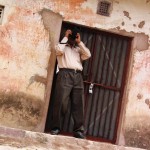Delhi High Court Rules Gay Sex is Legal
Land Mark Judgement in favour of the gays
Unnatural Offences – Section 377 of the Indian Penal Code
Section 377 dealing with Unnatural offences was drafted by Lord Macaulay in 1860.
It reads:
“ Whoever voluntarily has carnal intercourse against the order of nature with any man, woman or animal, shall be punished with imprisonment for life, or with imprisonment of either description for term which may extend to ten years, and shall also be liable to fine.
Explanation: Penetration is sufficient to constitute the carnal intercourse necessary to the offense described in this section.”
Even consensual heterosexual acts such as fellatio and digital penetration may be a punishable offense under this law.
There has not been a single conviction for homosexual relations in India during the last twenty years.
Human Rights Activists claim misuse
However, human rights activists have been alleging that the law has been used to harass people such as sexual minorities and transsexuals. They have published reports of the rights violations in India.
Some Indian Central Government Ministers also criticised the provision.
Naz Foundation India Trust
2001: Naz Foundation, an NGO fighting for gay rights, files PIL seeking legalisation of gay sex among consenting adults.
Sept 2, 2004: Delhi High Court dismisses the PIL seeking decriminalisation of gay sex.
Sept, 2004: The gay right activists file review petition.
Nov 3, 2004: The High Court dismisses the review plea.
Dec, 2004: Gay rights activists approach the Supreme Court of India against the order of the High Court.
Apr 3, 2006: The Supreme Court directs the High Court to reconsider the matter on merit and remands the case back to the High Court.
Oct 4, 2006: The High Court allows senior BJP leader B P Singhal’s plea, opposing decriminalising gay sex, to be impleaded in the case.
Sept 18, 2008: Centre seeks more time to take stand on the issue after the contradictory stand between the Home and Health ministries over decriminalisation of homosexuality. The Court refuses the plea and final argument in the case begins.
Sep 25, 2008: The gay rights activists contend that the government cannot infringe upon their fundamental right to equality by decriminalising homosexual acts on the ground of morality.
Sep 26, 2008: In view of contradictory affidavits filed by Health and Home ministries, the High Court pulls up the Centre for speaking in two voices on the homosexuality law.
Sep 26, 2008: Centre says that gay sex is immmoral and a reflection of a perverse mind and its decriminalisation would lead to moral degradation of society.
Oct 15, 2008: The High Court pulls up the Centre for relying on religious texts to justify ban on gay sex and asks it to come up with scientific reports to justify it.
Nov, 2008: Government in its written submission before the High Court says judiciary should refrain from interfering in the issue as it is basically for Parliament to decide.
Nov 7, 2008: High Court reserves its verdict on petitions filed by gay rights activists seeking decriminalisation of homosexual acts.
July 2, 2009: High Court allows plea of gay rights activists and legalises gay sex among consenting adults.
“Section 377 in its application to sexual act of consenting adults in privacy discriminates a section of people solely on the ground of their sexual orientation which is analogous to prohibited grounds of sex.
“We hold that sexual orientation is a ground analogous to sex and that discrimination on the basis of sexual orientation is not permitted by Article 15.
The court further said that this judgement will hold till Parliament chooses to amend the law.
The High Court made it clear that this “ judgement will not result in the reopening of criminal cases involving Section 377 of IPC that have already attained finality.”
The Judges pulled up the government for its stand that judiciary should refrain from interfering on the issue as it pertains to legislative function coming under the ambit of Parliament.
“We are constrained to observe that the submission of Additional Solicitor General reflect rather poorly on his understanding of the Constitutional scheme.
“The judiciary is constituted as the ultimate interpretor of the Constitution and to it is assigned the delicate task of determining what is the extent and scope of the power conferred on each branch of government,” the bench said.
“A constitutional provision must be construed, not in a narrow and constricted sense, but in a wide and liberal manner so as to anticipate and take it out of changing conditions and purposes so that the Constitutional provision does not get atrophied or fossilised but remains flexible enough to meet the newly emerging problem,” the Bench said quoting a Supreme Court judgement.
It should be noted that during the hearings, there were contradictions within the the Government – the Home Ministry had opposed scrapping of Section 377 while Ministry of Health came out openly in support of the gay rights activists.
Land Mark Judgement in favour of the gays
Some religious leaders have criticised the judgement/
An appeal has already been filed in the Supreme Court of India.

Amazing! I’m really enjoying the layout of your web site. Are you using a customized theme or is this readily available to all individuals? If you do not want to say the name of it out in the general public, please be sure to contact me at: sitab@op.pl. I’d really like to get my hands on this template! Appreciate it. Kindest regards www